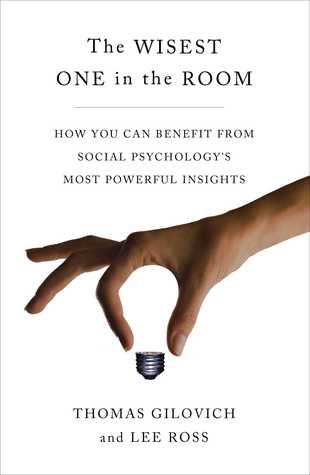When faced with a challenge, we often turn to those we trust for words of wisdom. Friends, relatives, and colleagues: someone with the best advice about how to boost sales, the most useful insights into raising children, or the sharpest take on an ongoing conflict. In The Wisest One in the Room, renowned social psychologists Thomas Gilovich and Lee Ross ask: Why? What do these people know? What are the foundations of their wisdom? And, as professors and researchers who specialize in the study of human behavior, they wonder: What general principles of human psychology are they drawing on to reach these conclusions?
They begin by noting that wisdom, unlike intelligence, demands some insight into people—their hopes, fears, passions, and drives. It’s true for the executive running a Fortune 500 company, the candidate seeking public office, the artist trying to create work that will speak to the ages, or the single parent trying to get a child through the tumultuous adolescent years. To be wise, they maintain, one must be psych-wise.
Gilovich and Ross show that to answer any kind of behavioral question, it is essential to understand the details—especially the hidden and subtle details—of the situational forces acting upon us. Understanding these forces is the key to becoming wiser in the way we understand the people and events we encounter, and wiser in the way we deal with the challenges that are sure to come our way—perhaps even the key to becoming “the wisest in the room.”
My Review:
My only complaint with this book is that it took forever to get to the point. After two or three examples and anecdotes I get the point. Move on to the how, to what was promised to me that I would read.
Anyone who is interested in psychology would probably love this book. If you do like this book, another recommendation is 'The Psychopath Next Door'.
Would I buy it for myself today? Probably not. Would I have six years ago when psychology books lined my shelves? Absolutely.
Final rating: 4/5
I received this book from the publisher in exchange for an honest review.


No comments:
Post a Comment